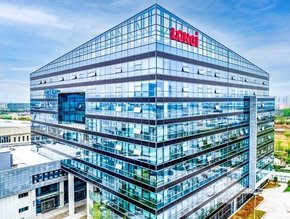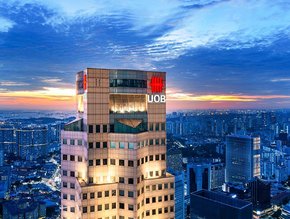Digital Realty: Data Gravity Intensity impacts APAC metros

Digital Realty, a global provider of cloud- and carrier-neutral data center, colocation and interconnection solutions, has published version 1.5 of its Data Gravity Index DGx™. The latest study covers 53 global metros and assesses the intensity and gravitational force of enterprise growth data on 23 industries.
“As businesses undergo the rapid pace of digital transformation, understanding the impact of data gravity intensity will be a fundamental requirement for both enterprises and service providers to unlock data-driven opportunities,” said Tony Bishop, SVP, Platform, Growth and Marketing at Digital Realty.
“Data gravity is an impediment to enterprise growth that will affect businesses across industries around the world. The release of our Data Gravity Index DGx 1.5 exploring the impact of data gravity across more metros and key industries is designed to help enterprises develop a data-centric architecture as they combat digital transformation challenges.”
The index analyzed Global 2000 enterprise companies’ presence in each metro, along with GDP, population, number of employees, technographics, IT spend, average bandwidth and latency, as well as flows of data. Digital Realty conducted research between August 2019 and August 2020 and drew upon third-party data sources – including the World Economic Forum and United Nations, as well as consulting and market research firms.
Data Gravity’s Growing Impact on Key Industries
The industries expected to experience the greatest data gravity intensity include banking and financial services, manufacturing and insurance, all of which are expected to see rapid growth in digital acceleration, digital-enabled interactions and data exchange volumes globally.
Key findings across Forbes Global 2000 enterprises include:
• Data gravity intensity for banking and financial services firms will be exacerbated by regional growth in key banking and financial hubs.
• Large manufacturers are expanding their data and analytics capabilities, driven by the growth of in-home consumption.
• The insurance industry is expected to see data gravity intensify as digital-enabled interactions continue to increase in importance while key metros experience rapid growth in the volume of enterprise data exchange.

Regional Forecasts for New Global Metros
According to the expanded report, Jakarta, Indonesia is expected to generate the fastest growth in data gravity intensity, followed by Singapore, Rome, Hong Kong, Melbourne and Atlanta.
In addition, banking and financial services centres (such as London, New York, Tokyo, Paris, Hong Kong, Amsterdam, Beijing, Silicon Valley, Frankfurt, Toronto, Singapore, Washington, Charlotte, Sydney, Milan and Seoul) are expected to realise significant growth in the volume of enterprise data exchange.
“Data gravity continues to accelerate unabated, and so does the urgency of addressing it,” said Dave McCrory, VP of Growth, Head of Insights & Analytics at Digital Realty. “We are expanding the findings of our Data Gravity Index to include an analysis of 23 industries and 32 additional metros to provide insights to help business leaders make better strategic decisions about where to locate their data.”
Digital Realty supports the world’s leading enterprises and service providers by delivering the full spectrum of data center, colocation and interconnection solutions. Digital Realty’s global data center footprint consists of more than 280 facilities in 49 metros across 24 countries on six continents.
For more information on business topics in Asia Pacific, Australia and New Zealand, please take a look at the latest edition of Business Chief APAC.
- The importance of shareholder value on Asian societiesLeadership & Strategy
- OAG confirm Kuala Lumpur as #1 connected airport in APACLeadership & Strategy
- Xero to hero – New Zealand’s most valuable companyTechnology
- Office space demand stronger in APAC than US and EU, reportLeadership & Strategy






